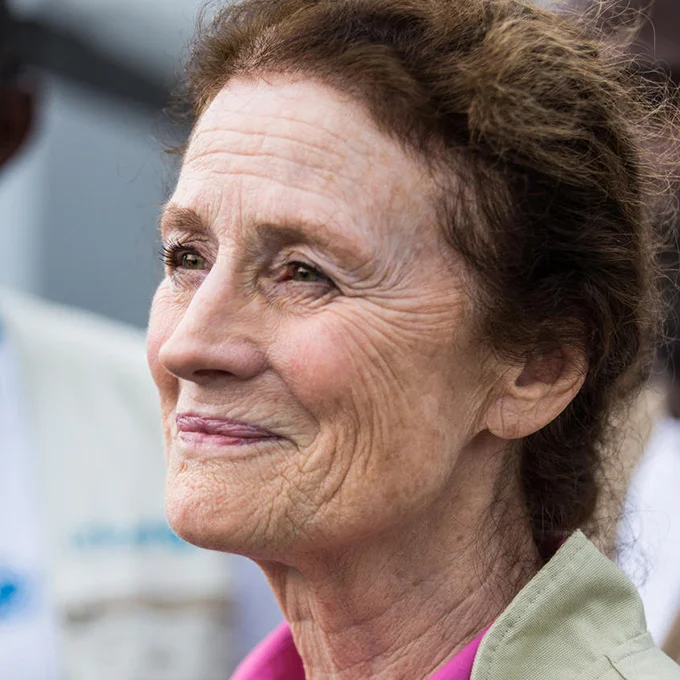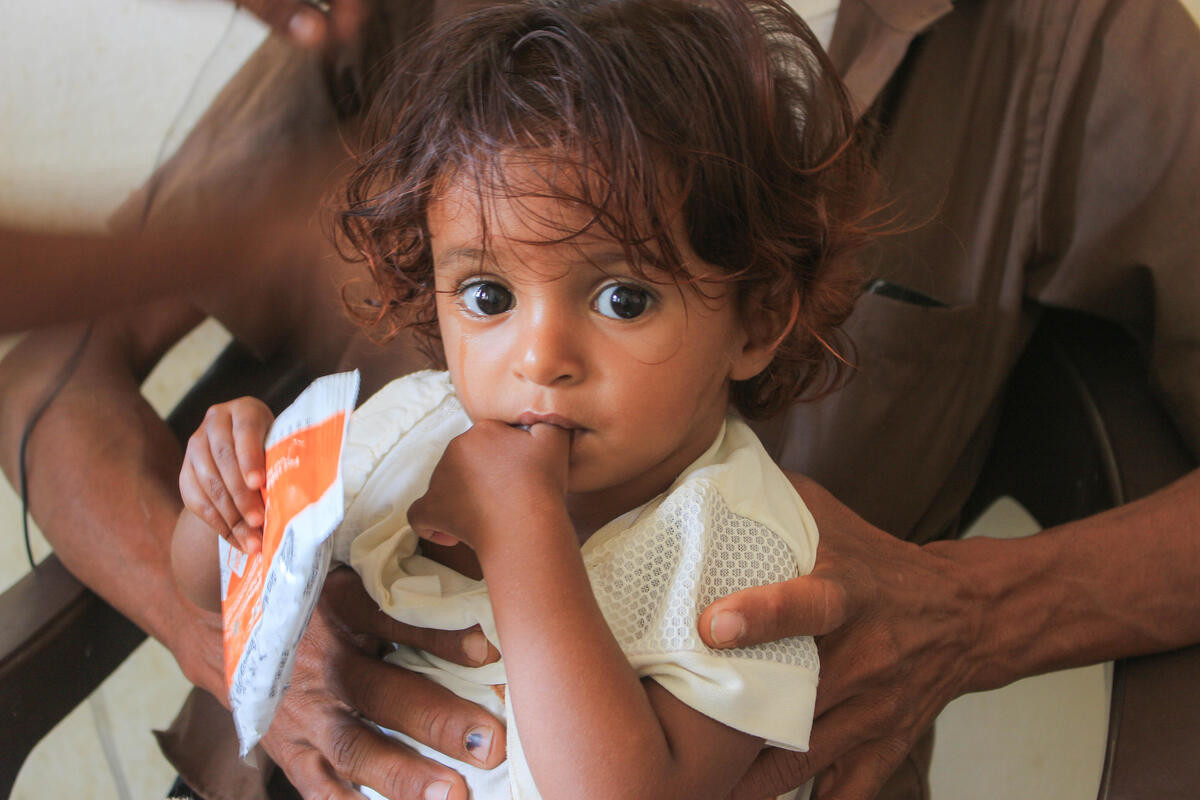Yemen: Children in need.
The civil war in Yemen is one of the greatest humanitarian catastrophes worldwide. The country's infrastructure has largely collapsed and the supply situation is worsening steadily. And now, amid this chaos, the coronavirus rages.
million children
million children
million people
The situation
For over five years, Yemen has been locked in a civil war that has developed into one of the world's greatest humanitarian crises. Around 80% of the population is now dependent on humanitarian aid, including around 12 million children and 6 million women of childbearing age. Over 2 million children have been forced to flee the war within the country. In the past five years, 3,600 children have been killed in the war, 5,700 injured, and at least 3,500 children forcibly recruited.
The country's infrastructure has largely collapsed, with only about half of all health care facilities still operational. More than 325,000 children under the age of five are suffering from severe acute malnutrition and are fighting for their lives. The cholera epidemic that broke out in the first year of the war, has affected over two million people to date, a quarter of them children.
The coronavirus pandemic has drastically worsened the lives of people in Yemen. The country has one of the highest mortality rates in the world from Covid-19 infections, five times the global average. More than 20 million people are in urgent need of clean water and soap. The pandemic further strains fragile health systems and exacerbates the underlying vulnerability of children, adolescents, and women to protection and gender. For example, at least 7.8 million school-age children lack access to education. They are vulnerable to violence, early marriages, child labor, and forced recruitment. As the coronavirus spreads, tens of thousands more children could develop life-threatening severe acute malnutrition in the coming months, while the total number of malnourished children under the age of five could rise to 2.4 million.

«Yemen is probably the most dangerous place in the world to be a child.»
How UNICEF helps
The conditions for humanitarian organizations in Yemen are very poor. The air and sea blockades complicate the delivery of aid and hostilities impede the distribution of goods. There is also a shortfall of funding. Nevertheless, UNICEF is providing vital aid to hundreds of thousands of children:
- To help check the spread of the coronavirus, UNICEF is shipping Covid-19 test kits and protective equipment to Yemen and providing on-site training.
- The agency is also flying dozens of tons of vaccines, medicines and water purification tablets to affected areas in the fight against cholera and other infectious diseases.
- UNICEF is providing clean drinking water, procuring gasoline for public water pumps and setting up sanitary facilities.
- Malnourished children are being given therapeutic nutrition and vitamins.
- Mobile teams are taking food, medicines and hygiene articles to remote regions.
- UNICEF is assisting in educating the population on explosive remnants of war. Children in particular risk injury from unexploded ordnance during play.
- UNICEF is working together with Yemen's Ministry of Education to ensure that as many children as possible have access to education in schools.
